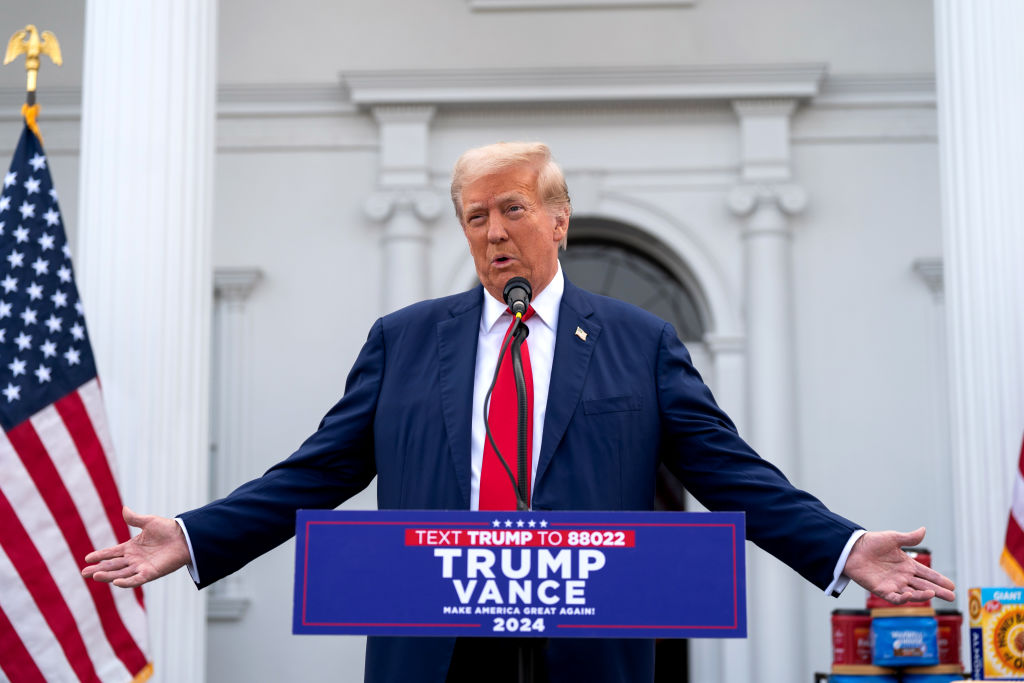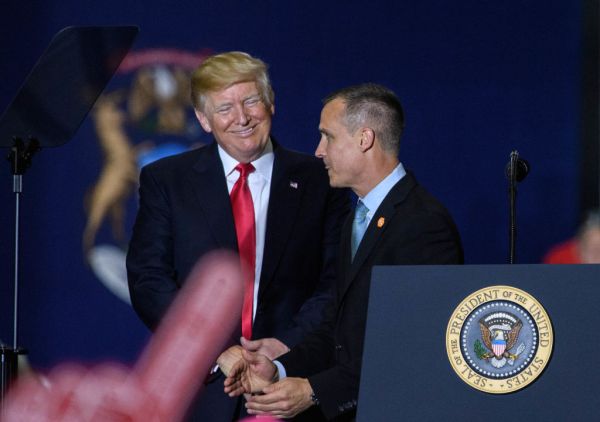Republican leaders have a clear message for their presidential nominee, Donald Trump: Stick to the issues.
“President Trump can win this election. His policies are good for America, and if you have a policy debate for president, he wins,” South Carolina Sen. Lindsey Graham told NBC News. “Donald Trump the provocateur, the showman, may not win this election.”
That’s the message from old-school Republicans like former South Carolina Gov. Nikki Haley, New Hampshire Gov. Chris Sununu, and former House Speaker Kevin McCarthy—the same kind of people who have spent nearly a decade pleading with Trump to buckle down and focus.
It’s tantalizing to Republicans because they so often see polls like the latest survey from the Washington Post and ABC News, which show Trump down by 6 points nationally to Democratic nominee Kamala Harris but still leading Harris on some of the most important issues to voters.
The vice president blew past President Joe Biden’s performance in his last month in the race, taking the race from a tie to one outside the margin of error in Democrats’ favor, but on key issues, she’s not much better than Biden. She’s down 9 points to Trump on handling the economy, about the same as Biden. Harris is trailing by 10 points on immigration, which is better than her boss’ 14-point deficit, but still pretty bad.
What Republicans hoping for a Trump transformation really want is for Trump to show a different character to a voting public that has mostly concluded that he is a lout and a selfish one at that.
The economy—particularly inflation—and immigration are consistently the top issues with voters, so how can it be that so many Americans are voting against the candidate who does better on those subjects? If only he’d stick to the issues!
But when Republicans say Trump should stick to policy points, they mean that he should stick to the policies they like and are broadly popular: low taxes, deregulation, robust national security, tough policies on crime and illegal immigration, etc. Trump frequently does talk about policy, just not in ways that are helpful.
Establishing criminal penalties for criticizing federal judges who rule in his favor, using cryptocurrency to pay off the federal debt, or pledging to prosecute members of the losing party if he is returned to power are all certainly policies.
What traditional Republicans are looking for is that always-just-over-the horizon promise of Donald Trump the disciplined campaigner, Donald Trump the populist pitchman for old-fashioned conservative policies.
They have certainly seen glimpses of him, most famously when his numbers crashed after the Access Hollywood tape came out in October of 2016 and Trump became willing to stay on message, at least a bit. But usually, no matter how near the transformation may seem, he escapes the clutches of the “stick to the issues” crowd.
But would Republicans really win an election about the issues this year if Trump listened to Graham & Co.?
It would probably be better, for instance, than posting on social media about a fake endorsement from Taylor Swift. It would definitely be better than making fun of dead and wounded Congressional Medal of Honor recipients in an effort to suck up to a mega-donor. Or attacking the popular Republican governor of must-win swing state Georgia, or claiming to be a better draw than Martin Luther King Jr. was, or, well, you get the idea.
But look a little closer at those issue numbers. On his best issues—the economy and immigration—Trump is at 46 percent in a poll in which he is getting 45 percent of the popular vote. There are, no doubt, some voters who prefer Trump’s policies on those issues but are planning to vote for Harris anyway, maybe even a few more than the 1-point differential suggests. But not that many. Trump’s score on the issues isn’t different from what it was when he was running against Biden. The former president is winning on the issues because those are the issues that matter most to Republicans and Republicans are overwhelmingly supporting Trump.
His low ceiling and high floor remain very much intact.
Where the race has changed isn’t on issues, but attributes. Harris leads Trump 56 percent to 26 percent on being “in good enough physical health to serve as president,” 46 percent to 37 percent on having “the mental sharpness it takes to serve as president,” 41 percent to 26 percent on being “honest and trustworthy,” and the killer, she leads 40 percent to 33 percent on “understands the problems of people like you.”
This is where we have to bear in mind that voters who care deeply about issues and have well-formed opinions about the parties’ and the candidates’ stances on them are unlikely to be persuadable voters. Almost by definition, the persuadable ones are those who haven’t staked out strongly held positions.
Those voters, not unreasonably, are going on a candidate’s character, personality, and, yes, vibes. So while it would be good for Trump to stick to the issues for these voters, it’s not even mostly about the positions themselves.
What those Republicans hoping for a Trump transformation really want is for Trump to show a different character to a voting public that has mostly concluded that he is a lout and a selfish one at that. Anything he could do to undercut those notions, including being reborn as a disciplined campaigner, would be helpful. But it would probably be just as helpful if he could stay on any message at all. He could riff on sharks and electric boats or The Silence of the Lambs every day and probably be better off than he is now. Voters don’t trust or like him, and that’s a problem beyond policy.










Please note that we at The Dispatch hold ourselves, our work, and our commenters to a higher standard than other places on the internet. We welcome comments that foster genuine debate or discussion—including comments critical of us or our work—but responses that include ad hominem attacks on fellow Dispatch members or are intended to stoke fear and anger may be moderated.
With your membership, you only have the ability to comment on The Morning Dispatch articles. Consider upgrading to join the conversation everywhere.